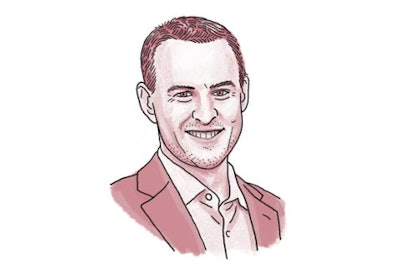
“Remind me why I should renew my membership again?” This is an issue every association is grappling with, and how they respond now will determine whether they survive or slowly die out. You could substitute the words sponsorship, trade show booth, or conference fee in the above question, because it doesn’t just apply to membership dues and associations.
Twenty years ago, if you wanted education and networking opportunities within your profession, an association was the place to go. Paying membership dues was a no-brainer, and registering to attend an association’s events was key to career advancement.
Now, however, people can get quality, industry-specific education and networking cheaper, faster, and in greater varieties without having to join an association at all—or attend its conferences.
Through blogs, for example, a broad range of ideas, opinions, and best practices can be shared. For free.
From a networking standpoint, LinkedIn allows users to self-select into trade groups that are far more specific than an association can provide. Whereas a publicist might join the Public Relations Society of America, for instance, now they can also join a LinkedIn group tailored to PR for pharmaceutical companies, and zero in on their exact niche. For free.
From a news standpoint, Twitter hashtags enable people to aggregate and share updates under virtually any micro-topic you can think of. Again, for free.
Technology, and specifically social media, has flattened and democratized the flow of information, and fostered a wide range of education and networking in a friction-free environment. Ideas and connections now flow fast and furious across the Web, and are not bothering to make a pit stop at the association office or its annual meeting. People are “on” seven days a week, checking emails and doing work at all hours of the day, and have come to expect lightning-fast delivery of information. By contrast, the traditional association lumbers along slowly, encumbered by various processes, bylaws, committees, and other legacy structures built in an era when business moved more slowly.
Not only do these structures hinder an association’s ability to move nimbly in a fast-paced world, they impact the economics as well. Most associations built vast bureaucracies over the years, and now have small armies of staff on the payroll who do nothing of value to the average member (e.g., ensuring chapter reports are filed in a timely manner). These organizations are groaning under their own weight and cost structures.
The same can be said of large industry conferences. At one point, Comdex—a competitor of the Consumer Electronics Show—was a monster event with more than 200,000 attendees and 2,300 exhibitors, before it shut down in 2003. It was recently reborn as a purely virtual show.
Is there a future for associations? That depends on if they are willing to take a hard look at the value they and their events provide to their members.
The board of directors needs to give itself an intervention, and ask some difficult questions, such as: If we were to start an association today, what would it look like? What are the key benefits we could offer our members that they can’t get elsewhere? Is our goal to seek ever-growing membership ranks, or do we want to narrow our focus? Do we want to have members at all, or just shift to being an advocacy group supported by advertising? What unique value could we provide at events that members can’t currently find for free?
The key is to avoid being limited by existing infrastructure. Too often, there are stakeholders (whether paid staffers or perennial volunteers) fighting to preserve their turf, whether it’s an event, newsletter, or committee. The worst thing an association can do is orient its focus to support structures from another era that may no longer be vibrant or in demand. In most cases, so much of that becomes encrusted in an association’s DNA, they simply can’t reorient themselves. The ones that survive and thrive will be the ones brave enough to ask the hard questions, make the necessary changes, and deal with the realities of today’s world, not yesterday’s.
Givner is the founder and executive director of New York-based Event Leadership Institute, an educational and training organization, co-owned by BizBash Media. @hgivner



















